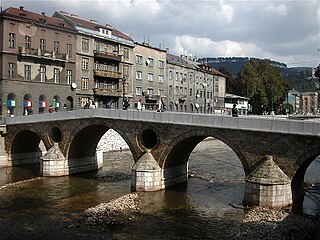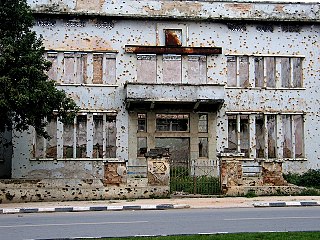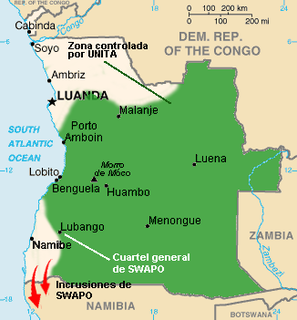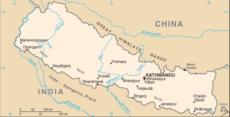
Following the Comprehensive Peace Agreement signed on 21 November 2006 between the Government of Nepal and the Communist Party of Nepal (Maoist) at the end of the Nepalese Civil War, the United Nations received a request for assistance, and established the political mission United Nations Mission in Nepal (UNMIN) on 23 January 2007 to monitor the disarmament of Maoist rebels and the preparations for Constituent Assembly elections in 2007.
United Nations Security Council Resolution 1741, adopted unanimously on January 30, 2007, after reaffirming all resolutions on the situation between Eritrea and Ethiopia, particularly resolutions 1320 (2000), 1430 (2003), 1466 (2003), 1640 (2005), 1681 (2006) and 1710 (2006), the Council extended the mandate of the United Nations Mission in Ethiopia and Eritrea (UNMEE) for a period of six months until July 31, 2007.

United Nations Security Council Resolution 1864, adopted unanimously January 23, 2009, after recalling resolution 1740 (2007), 1796 (2008) and 1825 (2008) on the situation in Nepal, the Council extended the mandate of the United Nations Mission in Nepal (UNMIN), whose mandate expired that day, by another six months until July 23, 2009.

United Nations Security Council resolution 954, adopted unanimously on 4 November 1994, after recalling Resolution 733 (1992) and all relevant resolutions on the situation in Somalia and a recent Security Council mission to the country, the Council noted the lack of progress in the peace process and decided, under Chapter VII of the United Nations Charter, to extend the mandate of the United Nations Operation in Somalia II for a final time, until 31 March 1995.

United Nations Security Council Resolution 1919, adopted unanimously on April 29, 2010, after recalling resolutions 1674 (2006), 1894 (2009) on the protection of civilians in armed conflict, 1612 (2005) and 1882 (2009) on children in armed conflict, 1502 (2003) on the protection of humanitarian and United Nations personnel, and 1325 (2000), 1820 (2008), 1888 (2009), and 1889 (2009) on women, peace, and security, the Council extended the mandate of the United Nations Mission in Sudan (UNMIS) until April 30, 2011 with the intention of renewing it further if necessary.

United Nations Security Council Resolution 1921, adopted unanimously on May 12, 2010, after recalling resolutions 1740 (2007), 1796 (2008), 1825 (2008), 1864 (2009), 1879 (2008) and 1909 (2009), the Council extended the mandate for the United Nations Mission in Nepal (UNMIN) until September 15, 2010 and stressed that arrangements should be made for the withdrawal of the mission by that date.

United Nations Security Council resolution 1174, adopted unanimously on 15 June 1998, after recalling resolutions 1031 (1995), 1035 (1995), 1088 (1996), 1103 (1997), 1107 (1997), 1144 (1997) and 1168 (1998), the Council extended the mandate of the United Nations Mission in Bosnia and Herzegovina (UNMIBH) for a period terminating on 21 June 1999 and authorised states participating in the NATO led Stabilisation Force (SFOR) to continue to do so for a further twelve months.

United Nations Security Council resolution 1180, adopted unanimously on 29 June 1998, after reaffirming Resolution 696 (1991) and all subsequent resolutions on Angola, particularly resolutions 1173 (1998) and 1176 (1998), the Council extended the mandate of the United Nations Observer Mission in Angola (MONUA) until 15 August 1998.

United Nations Security Council resolution 1213, adopted unanimously on 3 December 1998, after reaffirming Resolution 696 (1991) and all subsequent resolutions on Angola, including resolutions 846 (1993), 1127 (1997) and 1173 (1998), the Council extended the mandate of the United Nations Observer Mission in Angola (MONUA) for a final time until 26 February 1999.

United Nations Security Council Resolution 1923 was adopted unanimously on 25 May 2010, after recalling resolutions 1769 (2007), 1778 (2007), 1834 (2008), 1861 (2009), 1913 (2010) and 1922 (2010). The Council extended the mandate of the United Nations Mission in the Central African Republic and Chad (MINURCAT) for a final time until 31 December 2010, with a complete withdrawal by that date.

United Nations Security Council resolution 1273, adopted unanimously on 5 November 1999, after reaffirming resolutions 1234 (1999) and 1258 (1999) on situation in the Democratic Republic of the Congo, the Council extended the deployment of the 90 military liaison personnel as part of efforts to assist the peace process in the country until 15 January 2000.

United Nations Security Council resolution 1355, adopted unanimously on 15 June 2001, after recalling resolutions 1234 (1999), 1258 (1999), 1265 (1999), 1273 (1999), 1279 (1999), 1291 (2000), 1296 (2000), 1304 (2000), 1323 (2000), 1332 (2000) and 1341 (2001) on situation in the Democratic Republic of the Congo, the Council extended the mandate of the United Nations Mission in the Democratic Republic of Congo (MONUC) until 15 June 2002 subject to review every four months.
United Nations Security Council Resolution 1935, adopted unanimously on July 30, 2010, after reaffirming all previous resolutions and statements on the situation in Sudan, the Council extended the mandate of the African Union – United Nations Hybrid Operation in Darfur (UNAMID) for a further 12 months until July 31, 2011 and demanded an end to fighting and attacks on United Nations personnel and civilians.

United Nations Security Council Resolution 1939, adopted unanimously on September 15, 2010, after recalling previous resolutions on the situation in Nepal, including Resolution 1922 (2010), the Council extended the mandate of the United Nations Mission in Nepal (UNMIN) until January 15, 2011 amid concern over rising political tensions in the country.

United Nations Security Council resolution 1622, adopted unanimously on 13 September 2005, after reaffirming all resolutions on the situation between Eritrea and Ethiopia, particularly Resolution 1586 (2005), the Council extended the mandate of the United Nations Mission in Ethiopia and Eritrea (UNMEE) until 15 March 2006.
United Nations Security Council Resolution 1740 was unanimously adopted on 23 January 2007.
United Nations Security Council Resolution 1795 was unanimously adopted on 15 January 2008.
United Nations Security Council Resolution 1796 was unanimously adopted on 23 January 2008.
United Nations Security Council Resolution 1825 was unanimously adopted on 23 July 2008.
United Nations Security Council Resolution 1879 was unanimously adopted on 23 July 2009.













